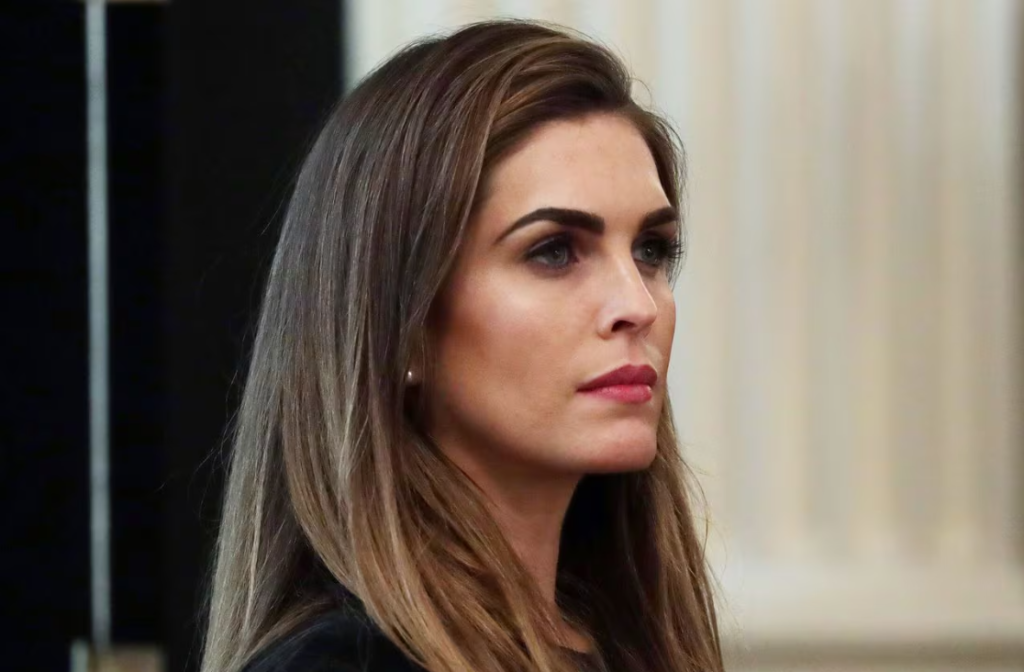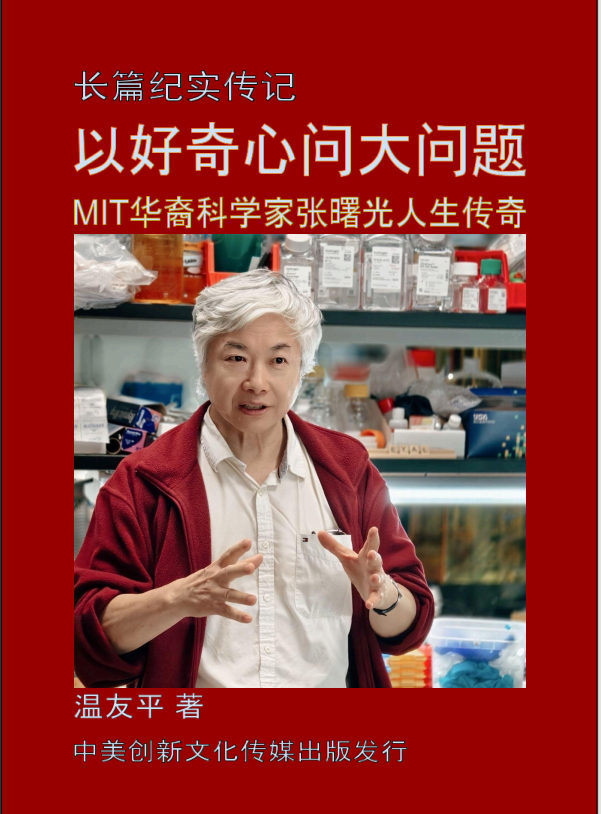【中美创新时报2024 年 5 月 4 日编译讯】(记者温友平编译)这位多年来引导唐纳德·特朗普度过冲突和丑闻的女性,声音低沉,姿势紧张,周五(3日)带着不同的负担走上证人席。她在曼哈顿一间沉闷的法庭的荧光灯下,坐在距离她曾经激烈辩护的前总统 15 英尺远的地方,为他的刑事审判作证。《纽约时报》记者Ben Protess、Jonah E. Bromwich、Maggie Haberman 和 Jonathan Swan 对此作了下述报道。
“我真的很紧张,”特朗普的前发言人、信息传递大师和全能顾问霍普·希克斯(Hope Hicks)向检察官质问她时承认,并宣称法庭上已经很明显了。
几个小时后,当特朗普的律师开始盘问她时,希克斯的不安达到了顶峰,她开始哭泣。当她的声音沙哑时,特朗普将目光锁定在她身上。
最初让希克斯感到不安的问题是她在家族企业特朗普集团的经历,她在那里工作留下了美好的回忆。希克斯离开了证人席,审判暂停,以便她能够平静下来。几分钟后,她回来继续作证,偶尔用纸巾擦眼睛。
这种引人注目的情感流露反映出希克斯对作证指控一名开启她职业生涯并托付给她声誉的男人感到不安。每次询问都会唤起为特朗普工作的另一种记忆——在他的公司、他的竞选活动,最后是在他的白宫——希克斯似乎强忍着泪水。
希克斯在私下对特朗普的支持者于 2021 年 1 月 6 日袭击国会大厦表示愤怒后,就失去了特朗普的支持,她在证词中表示,他们已经近两年没有说过话了。
特朗普面临最高四年的监禁,他因伪造记录以掩盖涉及色情演员的性丑闻而受到 34 项重罪指控。此案由曼哈顿地区检察官办公室提起,是美国总统首次受到刑事起诉。
检方在违背她意愿的情况下传唤了希克斯,以证明特朗普在镇压该丑闻和其他丑闻中所发挥的巨大作用。
她作证时穿插了大量的歉意赞美,称特朗普是一位痴迷于形象的事无巨细的管理者。她还承认,特朗普的掮客迈克尔·科恩在未经当时的候选人同意的情况下向色情演员斯托米·丹尼尔斯支付封口费似乎令人难以置信。
希克斯作证说,特朗普在事发多年后就表现出了对这种回报的认识。“先生。特朗普的观点是,”她说,“如果这个故事在大选前曝光那就不好了。”
但她对辩方并非完全没有帮助,为特朗普的律师提供了证据,证明他们的当事人是一个有家室的男人,他压制那些可恶的故事的动机可能不仅仅是为了赢得选举,也是为了保护他的家庭生活。这一论点可能会削弱检方的理论,即特朗普授权支付封口费是因为他一心想入主白宫。
希克斯向由 12 名全神贯注的纽约人组成的陪审团作了几个小时的证词,她将法庭带回了 2016 年总统竞选的场景:特朗普大厦 25 层,在 30,000 英尺高的空中,乘坐绰号为特朗普一号的飞机和将它们放在前往集会途中的竞选车内。
正是在这些时刻,希克斯生动地描绘了她和特朗普处理的一系列丑闻。
当《华盛顿邮报》联系希克斯询问其获得的一段录音时,第一场危机出现了,其中特朗普吹嘘自己抓住女性的生殖器。这段来自《走进好莱坞》片场的录像带让竞选活动陷入了疯狂,一群顾问挤在特朗普大厦内。
希克斯说,她“有点震惊”,但“很清楚这将是一个大新闻,至少在接下来的几天里会主导新闻周期。”
她说,特朗普也很沮丧,但他的早期反应之一是告诉她,他对女性的评论“听起来不像他会说的话”。
录像带的影响很快蔓延开来,促使丹尼尔斯抓住机会兜售她与特朗普发生性关系的故事。科恩竞相收买她的沉默,在针对这位前总统的案件中达成了 13 万美元的封口费协议。在他达成交易后,这场危机暂时得到了遏制。
但在竞选活动的最后几天,《华尔街日报》联系了希克斯,带来了更具破坏性的消息。该报准备报道称,与特朗普关系密切的超市小报《国家询问报》购买并埋葬了一名前《花花公子》模特的故事,该模特自称多年前与特朗普有染。
希克斯首先试图与竞选团队与拥有《华尔街日报》的媒体大亨鲁珀特·默多克建立联系,这样她就可以“争取一点额外的时间来处理这件事”,她说。当这一行动失败后,她给科恩打电话,科恩与该小报的出版商大卫·佩克有关系。
她作证说,特朗普告诉她,这件事不是真的,但希克斯说,她不记得他是否“逐字逐句”表示他对这笔封口费交易一无所知。
《华尔街日报》还计划报道丹尼尔斯,但希克斯再次向记者“明确”否认特朗普与这位色情演员有关系。
关于《花花公子》模特的报道发表后不久,即大选前五天,希克斯和科恩交换了一系列短信,希望该报道能够消失。
“我认为它没有得到太多关注,”她说,并补充说“媒体是最糟糕的。”
当科恩提到这个故事的报道很少时,希克斯回答道:“继续祈祷!!它正在工作!” (在法庭上,希克斯在部分源于该故事的刑事案件中作证,承认该特定信息的讽刺意味。)
特朗普当选,但《华尔街日报》的挖掘还没有结束。2018 年初,它发表了一篇文章,揭露科恩向丹尼尔斯支付 13 万美元。当被问及此事时,希克斯变得模糊,说她不记得那段时间了。 她变得更加紧张,咬紧牙关,说话有些结巴。
希克斯表示,她不了解特朗普被指控伪造的记录。检察官称,这些记录掩盖了特朗普向科恩偿还封口费的情况。
有时,她似乎在帮助防守。当检察官马修·科兰杰洛 (Matthew Colangelo) 问及特朗普对《华尔街日报》最初文章的反应时,她说他“担心他的妻子会如何看待这篇文章”。这一回应让人想起辩方的开场陈词,其中特朗普被描绘成一个顾家的男人,并为掩盖检察官已经将他与他联系起来的破坏性信息的努力提供了另一个动机。
尽管如此,希克斯的证词对于检方的案件至关重要,包括当她回忆起一次可能至关重要的谈话时:“我相信我在故事发表后不久就听到特朗普先生与科恩先生交谈,”她说,检察官可能会利用这一点认为特朗普参与了这些阴谋。
她发表了令人难忘的言论,支持了检方关于特朗普指示科恩付款的论点。她对检方提出的问题嗤之以鼻,该问题促使她考虑科恩“是否会出于善意而向斯托米·丹尼尔斯支付 13 万美元”。
她说,这种无私的举动“不符合迈克尔的性格。”
这次证词标志着一个令人震惊的景象:一位前总统的心腹转而反对他。
希克斯是一位出色的长曲棍球运动员和前模特,20 多岁时就开始为特朗普的女儿伊万卡和特朗普组织工作,然后出人意料地被提升为竞选新闻秘书。在两次在白宫工作期间,包括担任通讯总监这一崇高职务,她曾在福克斯新闻工作过,现在是一名通讯顾问。
现年 35 岁的希克斯在证人席上显得谨慎而自嘲,但在详细叙述中不时加上了“我不记得了”这句话。
她的情感证词既帮助了她的老老板,又伤害了她的老老板。她表示,特朗普集团规模庞大、成功,但运作方式“像一家小型家族企业”,正因为如此,“从某种意义上说,在那里工作的每个人都向特朗普先生汇报”。
这种描述符合检方对特朗普的描绘,他是一位亲力亲为的老板,他一定知道虚假记录和他们掩盖的性丑闻。
“他知道他想说什么,也知道如何说,我们都在听从他的领导,”希克斯说。
本文最初发表于《纽约时报》。
题图:霍普·希克斯 (Hope Hicks)。ALEX WONG/PHOTOGRAPHER: , ALEX WONG/GETTY
附原英文报道:
Trump and his one-time confidant Hope Hicks meet again, this time in a courtroom
By Ben Protess, Jonah E. Bromwich, Maggie Haberman and Jonathan Swan New York Times,Updated May 4, 2024
NEW YORK — Her voice low, her posture tense, the woman who spent years steering Donald Trump through strife and scandal stepped to the witness stand Friday carrying a different burden. She was there under the fluorescent lights of a dreary Manhattan courtroom, seated 15 feet from the former president she once fiercely defended, to testify at his criminal trial.
“I’m really nervous,” Hope Hicks, the onetime Trump spokesperson, messaging maestro and all-around adviser, acknowledged to the prosecutor questioning her, declaring what was already obvious to the riveted courtroom.
Hicks’ unease came to a head hours later as Trump’s lawyer began to cross-examine her — and she began to cry. As her voice cracked, Trump locked his eyes on her.
The question that initially unnerved Hicks was about her time at the Trump Organization, the family’s business, where she had fond memories of working. Hicks left the stand, and the trial paused so that she could compose herself. She returned minutes later to continue her testimony, occasionally dabbing her eyes with a tissue.
The striking show of emotion reflected Hicks’ discomfort with testifying against a man who launched her career and entrusted her with his reputation. Each time the questioning conjured up another memory of working for Trump — at his company, on his campaign, and finally in his White House — Hicks appeared to fight back tears.
Hicks, who fell out of favor with Trump once it emerged that she had privately voiced anger at the Jan. 6, 2021, attack on the Capitol by his supporters, said in her testimony that they had not spoken in nearly two years.
Trump, who faces up to four years in prison, is on trial for 34 felony charges of falsifying records to cover up a sex scandal involving a porn actor. The case, brought by the Manhattan district attorney’s office, is the first criminal prosecution of an American president.
The prosecution summoned Hicks — against her will — to demonstrate what it says was Trump’s outsize role in the suppression of that scandal and others.
She testified, interspersing plenty of apologetic compliments, that Trump was an image-obsessed micromanager. She also acknowledged that it seemed implausible that Michael Cohen, Trump’s fixer, would pay hush money to the porn actor, Stormy Daniels, without the then-candidate’s say-so.
And Hicks testified that Trump had shown awareness of that payoff years after the fact. “Mr. Trump’s opinion,” she said, was that “it would have been bad to have that story come out before the election.”
But she was not totally unhelpful to the defense, providing Trump’s lawyers grist to argue that their client was a family man, and that his motive for suppressing damning stories might not have been solely to win election but also to protect his home life. That argument could undercut the prosecution’s theory that Trump authorized the hush-money payment because he was bent on attaining the White House.
Hicks, who delivered several hours of testimony to a jury of 12 transfixed New Yorkers, transported the courtroom back to the scenes of the 2016 presidential campaign: the 25th floor of Trump Tower, 30,000 feet in the air aboard the plane nicknamed Trump Force One and placing them inside the campaign car on the way to a rally.
It was in these moments, which Hicks painted in vivid detail, that she and Trump managed one scandal after another.
The first crisis arose when The Washington Post contacted Hicks about a recording it obtained in which Trump had boasted about grabbing women by the genitals. The tape, from the set of “Access Hollywood,” sent the campaign into a frenzy, as a cadre of advisers huddled inside Trump Tower.
Hicks said she was “a little stunned,” but had a “good sense that this was going to be a massive story and sort of dominate the news cycle for the next several days at least.”
Trump was upset as well, she said, but one of his early reactions was to tell her that his comments about women “didn’t sound like something he would say.”
The fallout from the tape soon spread, prompting Daniels to seize the opportunity to sell her story of a sexual encounter with Trump. Cohen raced to buy her silence, striking the $130,000 hush-money deal at the heart of the case against the former president. After he made the deal, that crisis, for the time being, was contained.
But in the campaign’s waning days, The Wall Street Journal contacted Hicks with more damaging news. The newspaper was prepared to report that The National Enquirer, a supermarket tabloid that had close ties to Trump, had bought and buried the story of a former Playboy model who said she had an affair with Trump years earlier.
Hicks first tried to work the campaign’s connections to Rupert Murdoch, the media mogul who owned the Journal, so she could “buy a little extra time to deal with this,” she said. When that failed, she called Cohen, who had a relationship with the tabloid’s publisher, David Pecker.
Trump, she testified, told her that the affair story was not true, but Hicks said she did not remember whether he “verbatim” stated that he had no knowledge of that hush-money deal.
The Journal also planned to write about Daniels, but Hicks again denied “unequivocally” to a reporter that Trump had a relationship with the porn actor.
Shortly after the story about the Playboy model ran, five days before the election, Hicks and Cohen exchanged a series of text messages wishing that it would go away.
“I don’t see it getting much play,” she said, adding that “the media is the worst.”
When Cohen mentioned how little coverage the story was getting, Hicks replied: “Keep praying!! It’s working!” (In the courtroom, testifying in a criminal case that sprang in part from that story, Hicks acknowledged the irony of that particular message.)
Trump was elected, but the Journal was not done digging. In early 2018, it published an article exposing Cohen’s $130,000 payment to Daniels. When asked about that, Hicks became fuzzy, saying she could not recall the period. She grew considerably more tense, clenching her jaw and stumbling a bit in her speech.
Hicks said she did not have knowledge of the records Trump is accused of falsifying. Those records, prosecutors say, disguised Trump’s repayment of Cohen for the hush money.
And at times, she seemed to aid the defense. When a prosecutor, Matthew Colangelo, asked about Trump’s reaction to the initial the Journal article, she said that he was “concerned about how it would be viewed by his wife.” That response recalled the defense’s opening statement, in which Trump was portrayed as a family man — and helped provide an alternative motive for efforts to cover up damaging information to which prosecutors have already linked him.
Still, Hicks’ testimony was key to the prosecution’s case, including when she recalled a potentially crucial conversation: “I believe I heard Mr. Trump speaking to Mr. Cohen shortly after the story was published,” she said, which prosecutors might use to argue that Trump was involved in the machinations.
And she delivered a memorable observation that bolstered the prosecution’s argument that Trump directed Cohen’s payment. She scoffed at a prosecution question prompting her to consider whether Cohen “would have made a $130,000 payment to Stormy Daniels out of the kindness of his heart.”
That sort of altruistic move, she said, “would be out of character for Michael.”
The testimony marked a stunning spectacle: a former president’s confidant turned against him.
An accomplished lacrosse player and former model, Hicks started working in her mid-20s for Trump’s daughter Ivanka and the Trump Organization, before unexpectedly being elevated to campaign press secretary. Between two stints working at the White House, including the lofty role of communications director, she worked for Fox News, and now is a communications consultant.
Hicks, now 35, was cautious and self-deprecating on the stand, but sprinkled her detailed recounting with the words “I don’t recall.”
Her emotional testimony helped and harmed her old boss in the same breath. She remarked that the Trump Organization was big and successful but run “like a small family business,” and that because of that, “Everybody that works there, in some sense, reports to Mr. Trump.”
That description plays into the prosecution’s portrait of Trump as a hands-on boss who must have known about the false records and the sex scandal they obscured.
“He knew what he wanted to say and how he wanted to say it, and we were all just following his lead,” Hicks said.
This article originally appeared in The New York Times.

